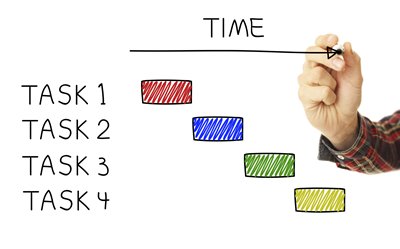How to Define The Top Team Tasks Everyday?
 Task management is not as simple as it may sound. The true test of a manager lies in his ability to manage his team tasks and keep them motivated. Communicating with the team effectively and creating the right environment for them, helps in improvement in productivity and reduction of errors. Taking the right steps helps you manage the team well and grow as a manager. Here are some easy ways to define the top 10 tasks every day:
Task management is not as simple as it may sound. The true test of a manager lies in his ability to manage his team tasks and keep them motivated. Communicating with the team effectively and creating the right environment for them, helps in improvement in productivity and reduction of errors. Taking the right steps helps you manage the team well and grow as a manager. Here are some easy ways to define the top 10 tasks every day:
1. Team Meeting: Every morning should start with a quick brainstorming session to decide on the daily goals. Depending on the goals, all the respective tasks of the team members must be discussed in detail. The time taken to complete each of the tasks must be taken into consideration.
2. Urgent and Important: As a manager one should analyse the top tasks that are most urgent and important for each individual. These must be on the basis of the goals to be achieved in the short run. All tasks that are specifically relevant to the goal completion must be separated and prioritised.
3. Productivity: Defining the top 10 tasks must also take into consideration the productivity level of every individual. Only those tasks which are important and can be reasonably completed by an individual, in a day, must be assigned to him.
4. Motivation: The manager must motivate the team to complete the daily tasks on time. Daily appreciation is a useful way to motivate the team members to perform better. Creating a positive atmosphere in the team helps in improving daily performance.
5. Unforeseen Tasks: It is the duty of a manager to take into account any unforeseen tasks that may occur on a daily basis. These must be either accommodated or scheduled, according to priority.
6. Time Tracking: Daily tasks must be tracked using an appropriate time tracking application. Online tools are helpful in gauging the output, vis-a-vis the planned activities. Team meetings must be used for discussing the productivity achieved the previous. The manager must also evaluate whether the tasks defined were prioritised correctly.
7. Bottlenecks: As a leader it is the duty of a manager to foresee any bottlenecks that may arise in achieving the given targets. The manager must ensure that team that he will personally support them in whatever difficulty they might face.
8. Process: Defining the process and clearly expressing the expectations, helps in bringing transparency to the system. Every task has a process to be followed and the manager should clear out all confusions regarding the same.
9. Acceptance: Every member of the team must willingly accept their daily targets. If they have any trouble with their daily targets, the manager must ensure redressal. Communicating effectively in the daily meetings and expressing their views, helps individuals to be confident about their to-do list and their completion.
10. Collaboration: A team lead must ensure that he motivates the team to collaborate and communicate amongst themselves. Getting the desired help from co-workers helps in completing the tasks which are really urgent, swiftly and easily.
Daily task management is absolutely essential for improving team and organisational efficiency. But, this should be strategised as a tool for motivation more than a tool to keep a check on individual productivity. The outcome, then shall surely be much closer to what’s desirable.
Ved Raj is a business enthusiast. He writes about startups, productivity and entrepreneurship. He is working as a Marketing Manager with ValueCoders. ValueCoders is a leading provider of remote development teams.

 Delicious
Delicious Digg
Digg StumbleUpon
StumbleUpon Propeller
Propeller Reddit
Reddit Magnoliacom
Magnoliacom Newsvine
Newsvine
Comments
Post new comment